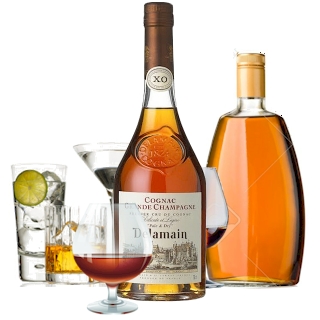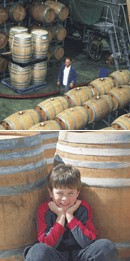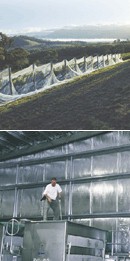


Great wine is made in the vineyard. At its best it is like a fingerprint, inextricably linking the personality and mood of the land from which it has sprung.

The Giant Steps vineyard is on 115 acres of rocky gravel over clay, 50 km east of Melbourne, on the north facing slopes of the Warramate ranges overlooking the Yarra Valley. The vineyard covers two ridges that rise from 400 to 1100 feet above the valley floor.
Giant Steps seek to grow fruit and ultimately make wine that is less overt and obvious than is encouraged in Australia. The winemakers look for structure and length rather than breadth; finesse rather than largesse and above all, fruit rather than artefact.
Giant Steps is owned and operated by a small team - Phil, Allison and Harry Sexton.
The story starts 2600 km and 23 years ago when Phil established the Devils Lair vineyard in Margaret River. He was joined there in 1990 by Allison, an American biochemist. 1995 proved an excellent year; son Harry was born.

In life, not many people get the chance to do something again; differently, with the benefit of hindsight. While they loved the wines they were producing, they dreamed of creating a small, specialised cool climate vineyard together, as a family. From scratch.
And, in 1997 they took the giant step; sold Devils Lair and crossed Australia to a dream site on the slopes of Victoria's Yarra Valley, alongside several benchmark cool climate vineyards that they had long admired.
After an immense amount of work and many years they have turned a horse stud into a vineyard. The winemakers wanted hands on and they got it.
The Sexton family winemakers are quietly confident that the Yarra Valley can produce Bordeaux varietals with savoury structure, finesse, clarity and textbook fruit purity; without the cedary, geranium/capsicum characters we so often see in this country out of cooler or fast ripening regions.
























